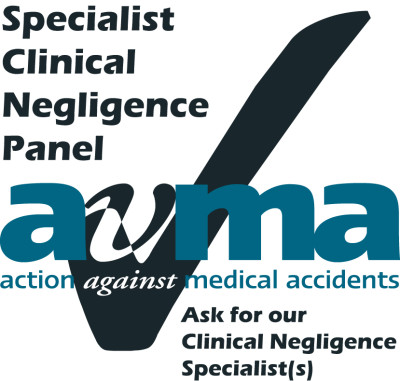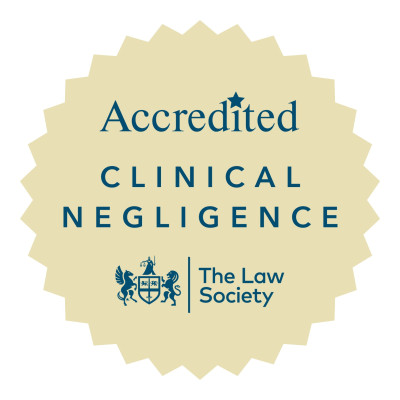CLOSE SEARCH

A cancer diagnosis is life-changing. Early detection and treatment are often critical, and when mistakes are made by doctors or hospitals, the consequences can be devastating. Our specialist medical negligence team helps patients and families affected by negligent cancer care secure justice, financial support, and access to future treatment.
Cancer negligence claims can occur in a number of ways, including:
Delayed diagnosis – symptoms overlooked, scans not requested, or test results not followed up.
Misdiagnosis – cancer mistaken for a less serious condition, leading to treatment delays.
Failure to refer – GPs not referring patients urgently under the NHS two-week cancer referral pathway.
Treatment errors – mistakes in surgery, radiotherapy, or chemotherapy regimes.
Poor follow-up care – missed opportunities to detect recurrence or spread of disease.
There are many types of cancer that can manifest in numerous ways. We set out below a few examples:
Breast cancer – lumps or changes not investigated quickly.
Bowel/colorectal cancer – bleeding or changes in bowel habits misattributed to other causes.
Cervical cancer – failures in smear testing or follow-up.
Lung cancer – persistent cough or chest symptoms not properly examined.
Prostate cancer – delayed referrals after abnormal test results.
Skin cancer (melanoma) – suspicious moles not biopsied or referred in time.
Overian cancer
Pancreatic cancer
Lymphoma cancer
Bone cancer
Compensation aims to reflect the harm caused and to cover both immediate and long-term needs:
Pain and suffering – including worsened prognosis or reduced life expectancy.
Care and treatment costs – private treatment, specialist therapies, or palliative care.
Loss of earnings – when you are too unwell to work.
Practical support – home adaptations, mobility aids, or nursing care.
If a patient has sadly passed away, claims can still be brought by the estate or dependants, including:
Loss of dependency – replacing financial support or services the deceased provided.
Bereavement damages – a statutory award for certain close relatives.
Funeral expenses – covering reasonable funeral costs.
Step 1: Free Initial Consultation
We start with a no-obligation discussion about your case. We’ll listen to your story, explain your rights, and advise on whether you may have a claim.
If we think there are prospects of success, we obtain and carefully review your medical history and the circumstances of your care. Experience is vital at this stage, an expert and experienced lawyer can identify whether a case is likely to benefit from further medical investigation
Step 2: Medical Expert Evidence and the Importance of Causation
If the case appears strong, we instruct independent medical experts (such as oncologists, radiologists, or pathologists). Their role is twofold:
1. Negligence – confirming whether the standard of care fell below what would reasonably be expected.
2. Causation – crucially, showing that the negligence directly caused harm or worsened the outcome.
In delayed diagnosis or misdiagnosis cases, establishing causation can be complex. Experts must demonstrate that earlier detection or correct treatment would have made a material difference to prognosis, survival, or treatment options. Without this link, a claim cannot succeed, even if negligence is clear. Experienced solicitors are essential at this stage to interpret expert opinions and ensure your claim focuses on proving both breach of duty and causation.
Step 3: Letter of Claim
Once supportive medical evidence is obtained, we send a detailed Letter of Claim to the hospital, GP, or NHS Trust involved, setting out what went wrong and how it has affected you.
Step 4: Defendant’s Response
The defendant has 4 months to reply, either admitting negligence or denying liability.
Step 5: Settlement Negotiations or Court Proceedings
If liability is admitted, we aim to reach settlement quickly, including interim payments to fund treatment, care, or financial support while the case continues.
If liability is denied, we may issue court proceedings. Even then, most claims settle before trial.
In most cases, you have 3 years from the date of negligence, or from when you first realised negligence may have occurred, to start a claim.
For children, the 3-year period runs from their 18th birthday.
For those lacking mental capacity, no limitation applies until capacity is regained.
If a loved one has died, the estate or dependants generally have 3 years from the date of death or date of knowledge.
If you or a loved one has suffered because of a delayed cancer diagnosis, misdiagnosis, or treatment error, you don’t have to face it alone. Our experienced medical negligence solicitors are here to help you understand your rights and secure the compensation you need.




-400.jpg)
Telephone -
9am to 5pm

Partner & Head of Medical Negligence Department
Lauren heads up our Medical Negligence Department and has a wealth of experience in this area having specialised in medical negligence since qualification in 2004.She started her career working at two of the leading medical negligence firms in L......Call the Taylor Rose team or fill out the form below and we will get back to you as soon as possible.
Telephone opening hours -
9am to 5pm